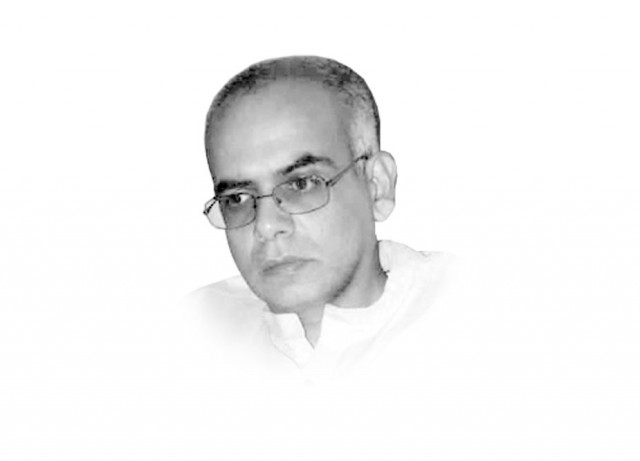Listening to our government school teachers
Teachers said they have no say in policymaking for textbook, curriculum development, designing student assessment

Teachers seem to provide a convenient target given the dismal performance of the education sector as a whole. Yet, little attention has been paid to what teachers themselves think about the challenges they face and the support they require for imparting better education. The Alif Ailan education campaign collaborated with the Society for the Advancement of Education to release an important report based on a survey of more than 1,200 teachers from both government and private schools, in 15 districts across the country. As a majority of Pakistan’s children, especially those growing up in low-income households, attend government schools, around 75 per cent of the survey sample was drawn from public schools. This article, too, highlights issues facing government school teachers in particular.
The survey findings reveal that political interference and non-appreciation of teachers adequately doing their jobs pose major irritants for teachers. The former issue causes problems like ghost teachers and teacher absenteeism, while the latter issue lead to professional apathy. A majority of teachers have not seen a curriculum, and they are not trained in vital pedagogical areas such as assessment or use of textbooks. Thus, professional pre-service teaching degrees and certification, as well as in-service teacher training programmes, need significant overhaul.
Teachers reported having no say in policymaking related to textbook and curriculum development, or in designing student assessment. There is also a need for an incremental shifting of management authorities to the head teachers, rather than keeping them under the control of education department officials. Teachers are spending much time outside classrooms meeting with head teachers or catering to the requirements of education department officials. The research report rightly recommends that teachers’ time outside school hours only be spent on professional development or in providing remedial teaching to weaker students.
Teachers identified several other constraints which prevent them from providing adequate education to their students. Overcrowded classes are one such problem. Teachers being required to teach multi-level classes, or having to do so using age-inappropriate textbooks, which are not delivered on time, are other legitimate problems. The fact that the medium of instruction they are required to use is often a language that children do not speak at home, and find hard to understand, is another legitimate issue. Many public schools lack basic facilities such as running water and electricity, which further makes a school’s learning environment inhospitable. Poverty itself is a serious impediment which public school teachers have to contend with. Many of their students belong to the poorest households, and are likely to be malnourished, which in turn affects cognitive development and learning abilities. Poorer students often stay out of school to help make ends meet, during harvesting, for example.
Unless more thought goes into addressing a much broader range of challenges within the education sector itself, placing the responsibility for the failure to deliver quality education on the shoulders of teachers alone is not justified.
Published in The Express Tribune, December 5th, 2014.
Like Opinion & Editorial on Facebook, follow @ETOpEd on Twitter to receive all updates on all our daily pieces.















COMMENTS
Comments are moderated and generally will be posted if they are on-topic and not abusive.
For more information, please see our Comments FAQ